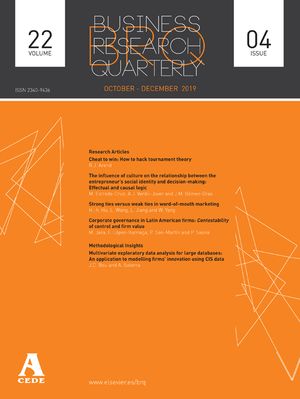Este trabajo analiza la racionalidad económica de la multiplicidad de mecanismos de gobierno observados en las cadenas hoteleras. En primer lugar, se describe dicha variedad en función del control que cada solución permite ejercer a la cadena sobre los activos clave del negocio hotelero: desde el control máximo que ofrecen los hoteles en propiedad hasta el mínimo proporcionado por la franquicia. En segundo lugar, apoyándonos en la Economía de los Costes de Transacción, la Teoría de la Agencia y en la Teoría de Recursos y Capacidades, se analizan los factores determinantes de la selección del mecanismo de gobierno para cada hotel. Los resultados obtenidos, a partir de una muestra de 376 hoteles, indican que los establecimientos de más tamaño y los que están agrupados suelen ser explotados en propiedad por las cadenas, lo que pone de relieve las ventajas de la integración para mantener bajo control los establecimientos más emblemáticos y complejos y la importancia de los costes de control de los responsables de cada establecimiento. También las marcas con mayor riesgo de expropiación están más integradas.
This paper analyzes the economic rationality of the variety of governance mechanisms observed in hotel chains. First, we describe that variety focusing on how each solution controls key assets in hotel industry. They range from wholly-owned hotels, which offer the greatest control over assets to the hotel company, to franchising which offers the lowest control. Second, grounding on Transaction Cost Economics, Agency and Resource Based theories, we analyze factors determining the choice of a particular mechanism of governance for each hotel. Results, on a sample of 376 hotels, show that the greater the establishment and the geographical concentration, the higher the likelihood of wholly-owned hotels. This reflects the advantages of integration in terms of controlling flag-ship and complex establishments and the relevance of hotel manager controlling costs. Furthermore, brand names with higher risk of expropriation are also more integrated.
Esta investigación ha sido financiada por la Unión Europea a través del Proyecto CIT3-513420 del Sexto Programa Marco y por el Plan Nacional de I+D+I a través del proyecto SEJ2007-63706ECON. Agradecemos los comentarios de dos evaluadores anónimos y los de la editora de la revista CEDE, que han mejorado sustancialmente el trabajo, así como las sugerencias recibidas por los participantes en el XVII Congreso Nacional de ACEDE y en la 5thIberoamerican Academy of Management Conference donde se presentaron versiones previas de este trabajo. Por último, ha resultado de gran ayuda la colaboración de Lorena Fernández Suárez y de Elena González Pérez en el proceso de elaboración y depuración de la base de datos empleada en el estudio.




